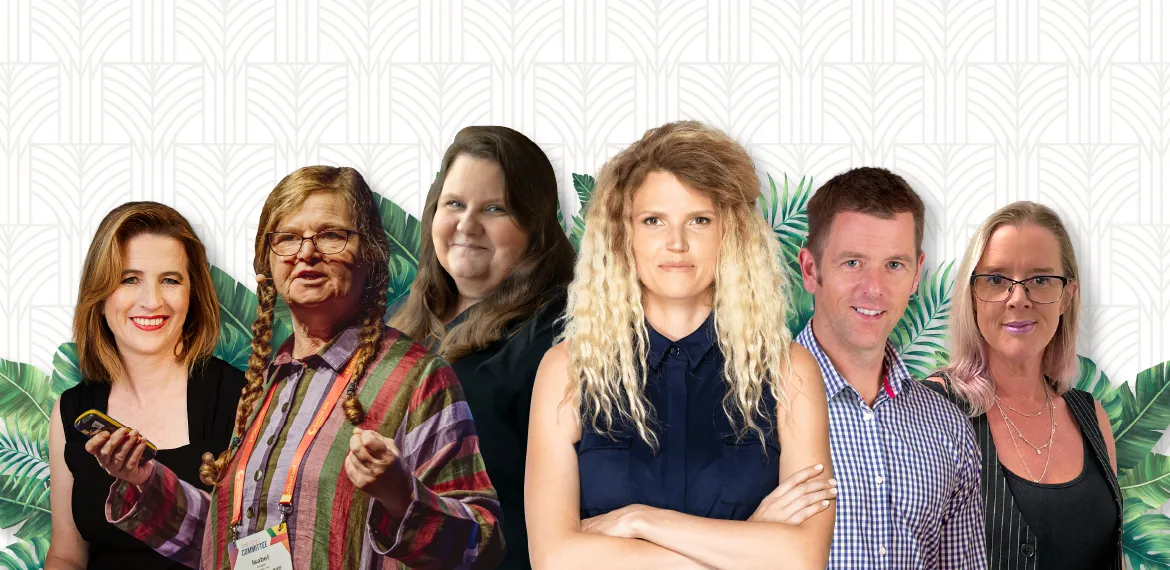
Our EuroSTAR 2023 keynote speakers are here to deliver fresh takes, cutting edge insights, and lots of lightbulb moments to spark new ways of thinking for your work and testing projects. Check them out below, and get ready for a burst of inspiration.
It only takes one genius
Isabel Evans
Would we make more progress in testing projects if we had some more geniuses on the team? How about one genius? Would one genius deliver or totally mess it up? Designing and building software is not a solitary occupation, and testing projects are hard. We work in groups because the problems and challenges are too complex for one person to resolve – no matter how clever they are. A a single genius, or even a team of geniuses, might fail badly. A surer route to success is to build a well-balanced, egoless team, where everyone contributes and is respected for their skills and viewpoints. Learn why designing and building software is not a solitary occupation, and how to build a team that succeeds.
Testing with purpose: How stories, values and kindness make testing better
Kristel Kruustük
Learn how to better test with purpose, and uplift the entire software testing community. Sound simple? Kristel founded her company Testlio to try to solve problems in the freelance marketplace, including bug-based pay, a lack of learning opportunities, and isolation. She learnt that stories, values, and kindness can be transformational to our work, and create a purpose. Stories of testers and testing help us to understand and identify gaps in the experience and fulfillment people encounter in testing. Aligning testing teams around a set of values lets trust and purpose grow. Kindness allows us to see people who need support, learning opportunities, and have concerns and considerations outside work. These three elements together can help us build purposeful testing. Get real-world examples of how you can unite testing and QA teams, and invigorate their work and integration with development
Whose test is it anyway?
Maaret Pyhäjärvi
There’s a question that people keep asking, expecting there is a simple recipe they just need to learn: how would you test this? When your job is to find some of what others may have missed, the responses vary greatly. Software development is a social activity, and the social context determines what work gets priority. In this talk, learn Maaret’s 10-step recipe in exploratory unit testing of a program created using computer-assisted software authorship. You will be testing programs and systems, and learning how to succeed with the right ingredients: social software testing, perspectives and oracles, and strategies and tactics. See why it’s not about testers, but testing – and sharing tests in teams across test levels through collaboration.
The cyber security of smart ‘adult’ toys – or lack of it!
Ken Munro and Jo Dalton
Did you know that smart adult toys are widely used in the military, as couples are often separated when posted overseas? These toys allow for an intimate relationship to continue, despite being physically separated. However, the poor cyber security of these toys expose the safety and security of military personnel. Some of these toys expose the exact GPS location of the user to anyone with some very basic hacking skills. The degree of privacy invasion resulting from poor security of these toys is quite shocking. The manufacturers of these devices are slowly improving their security – but not fast enough. Ken and Jo will be bringing a number of these toys to this session in order to demonstrate the problems with them. See why validating input and output is so critical, and why authentication isn’t the same as authorisation – and where it often goes wrong.
We’re off to rehab – communicating in an isolated & decoupled world
Anne-Marie Charrett
At work, remote first is the new norm, with meetings on Zoom and chatbots reminding us to WOL (Work out Loud) or TOL (Talk out Loud). But it goes further. Technology-wise, our microservices architecture and CI/CD infrastructure demand isolate and decouple our features into micro-stories separating us from our customers. Concepts such as Team Topologies encourage us to divide our teams into stream-aligned customer-facing, platform, or enabling teams. Our context has changed, and we must revisit how we work, communicate, test and build software. What was once a casual chat by the water cooler must be designed purposefully and included in formal meetings. Where you once relied on non-verbal cues, the written word requires more thought. In this talk, you’ll learn when and how you communicate is critical to the message being heard, and how to make collaboration intentional, so that your voice is heard.
Check out our full programme and join us June 13-16th for 4 days of learning, testing, and connecting with your peers.





